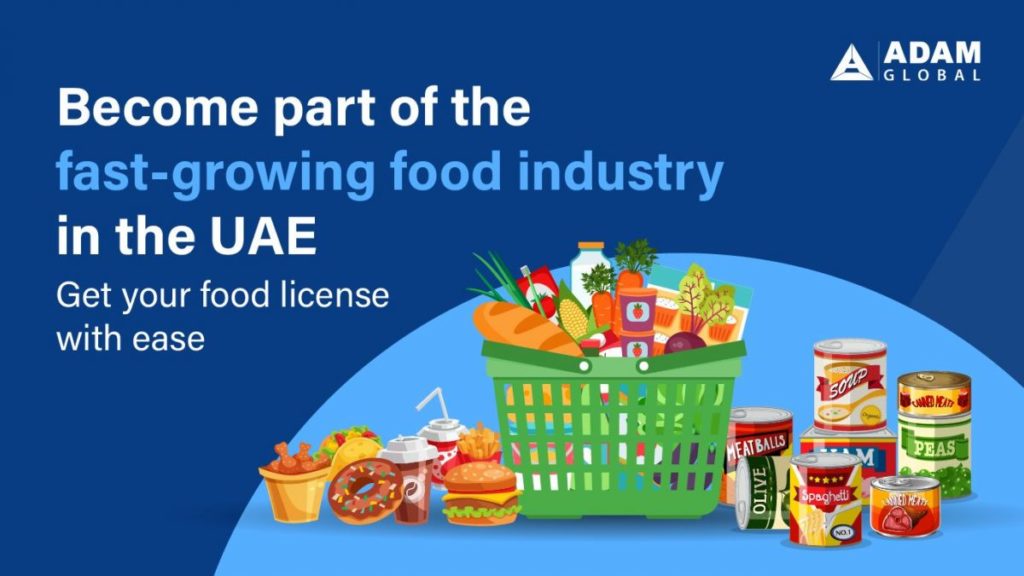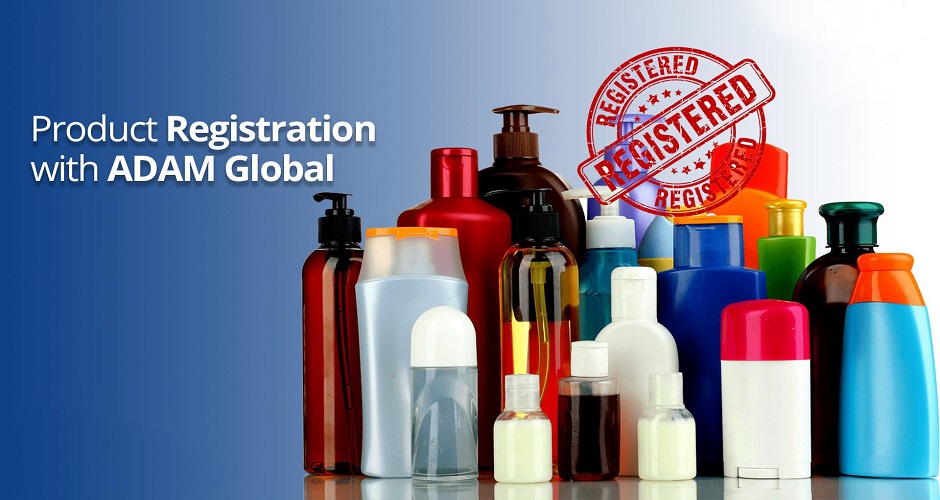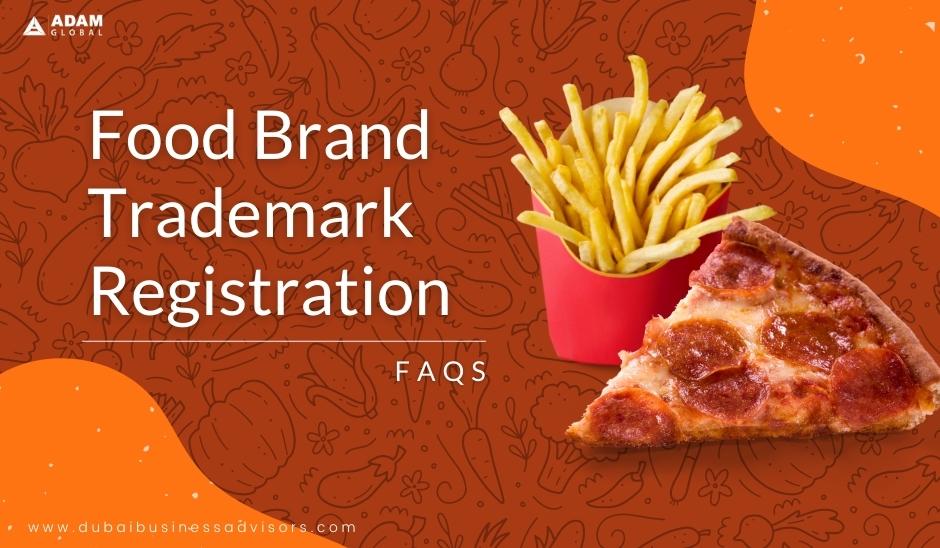Table of Contents
How to Get a Food License in Dubai?
In a city where culinary experiences transcend food service, obtaining the right food license becomes an entrée into this tantalizing world. The landscape of licenses in Dubai reflects the eclectic mix of cultures, mirroring the diverse culinary preferences of its cosmopolitan populace. From the pervasive aroma of street food vendors to the sophisticated ambiance of fine dining establishments, each culinary venture necessitates a specific license aligned with its nature. The process of acquiring these licenses, albeit intricate, serves as the gateway to transforming culinary aspirations into profitable endeavors. Whether aspiring to establish a quaint cafe nestled in the heart of the city or contemplating a dynamic food truck experience that navigates Dubai’s vibrant streets, understanding the nuances of these licenses becomes paramount.
As Dubai paves its way to building a successful food service market in the global hub, F&B businesses are expected to conduct market research, understand the market’s needs and demands, identify the target audience, and create a business plan that aligns with their goals.
How to Start a Food Business in Dubai
Before food service When launching a food business in Dubai, the first step is to conduct market research to understand the needs and demands of the industry. Identifying the target audience and their preferences is also a recipe that will help you do well in the foodservice sector.
- Conduct Market Research: Before starting a food business in Dubai, it’s essential to conduct market research, understand the market’s needs and demands, identify your target audience, and analyze your competitors’ strengths and weaknesses. It is best to contact business setup experts like Adam Global, who can guide you through the process. The information will help you create a unique selling proposition that differentiates you from your competitors and appeals to your target audience.
- Choose Your Business Type: Dubai offers a range of food business opportunities, and you can choose the one that suits your interests and budget. Some popular food business types include restaurants, cafes, food trucks, and catering businesses. Each business type has its own unique advantages and challenges, so it’s crucial to choose the one that aligns with your skills, experience, and resources. You can ask for the steps and procedures advised by a legal business consultant.
- Develop a Business Plan: A well-written business plan is critical to the success of your food business in Dubai. It should outline your business objectives, target market, marketing strategy, financial projections, and operational plan. A business plan serves as a roadmap that helps you stay focused and organized, make informed decisions, and attract investors if needed.
- Register Your Business: Once you have a business plan in place, the next step is to register your business. You need to choose a trading name and provide all the necessary documents, such as your business plan, passport copies, and visa information, to your business setup consultant for further processing.
Steps to Getting a Food License in Dubai
How to Get a Food License in Dubai
Getting a food license in Dubai is a multi-step process that requires approval from both the Department of Economic Development (DED) and the Dubai Municipality’s Food Control Department (FCD).Steps to follow:
Register your business with the DED. You can do this online or in person. You will need to provide basic information about your business, such as your name, contact information, and the type of food you will be serving
Obtain approval from the FCD. This involves submitting a food safety plan, which outlines your procedures for ensuring food safety. The FCD will also inspect your kitchen and food preparation areas to make sure they comply with their regulations.
Apply for a trade license and a food license. You can do this online or in person at the DED. You will need to pay fees for both licenses.
Pass a food safety inspection. Once you have your licenses, the FCD will conduct a final inspection of your establishment. If you pass, you will be issued a food license.
Home food license:
If you are planning to operate a home-based food business, you will need to apply for a special home food license. This license has different requirements than a regular food license.
Legal Requirements for Food Businesses in Dubai
Given the region’s rich cultural heritage and developing economy, opening a food business in Dubai can be a meaningful endeavor. Like any kind of business venture, however, it requires planning and conformity to local rules and regulations. Whether you aim to operate a coffeehouse or a dining establishment, knowing the unique regulations in these locations is essential to your business’s success.
- Business Permit
- Decide on your business structure. Whether you opt for a sole proprietorship, partnership, or limited liability company (LLC), choose the one that aligns with your long-term goals and legal requirements.
- Obtain a trade license: Apply for a trade license from the Department of Economic Development (DED) in the respective emirate. The type of license required depends on the nature of your food business, such as a restaurant license, catering license, or food truck license.
- Food Hygiene Standards
- Respect local food safety laws. Make sure your company abides by the regulations established by the appropriate authorities for food safety. This covers handling, storing, and preparing food properly.
- Food service worker training: Ensure that all of your staff members receive the required food safety training, particularly those who handle food.
- Business Area
- Select the ideal location: Choose a strategic site for your food business that complies with zoning regulations and is in line with your target market.
- Obtain the required licenses: Obtain trade and health licenses, as well as approvals from the municipality for your company location.
- License and Approval
To make sure your activities are lawful and secure, starting a food business requires the following licenses and permits:
- A trade license legalizes your company and outlines the types of operations you are allowed to carry out.
- A food handling license enables your company to handle and cook food.
- A health and safety permit guarantees that the conditions on your property are up to code.
- Alcohol License, If you intend to offer alcohol at your establishment, you must get an alcohol license, if applicable.
- A signboard license enables you to display your company name and logo outside of your place of business.
- Documents and Paperwork
In order to secure the necessary licenses and permits, the following paperwork must be ready:
- Business Plan: A detailed document that includes your target market, competitive analysis, financial projections, and business strategy.
- Passports and Visa Copies: Copies of valid passports for all employees and business partners residing in the United Arab Emirates
- Certificate of No Objection (NOC): You will require an NOC from your sponsor if you are a foreign investor.
- Tenancy Agreement: A legitimate tenancy agreement for your commercial space
- Menu: A comprehensive list of the dishes you intend to serve
- Civil Defense NOC: This is needed to prove that fire safety laws are being followed.
- Human Resource Requirements
- Putting up a capable and dependable staff is crucial to the efficient operation of any food business. Take into account the following personnel needs:
- Work permits and visas: Get work permits for your international staff members, and make sure their visa status is current.
- Food Handling Credentials: As was previously indicated, be sure that every employee handling food has the appropriate food safety certificates.
What is the cost of getting a food license in Dubai?
The cost of getting a food license in Dubai varies depending on the type of license and activity. However, the cost of a food license can range from AED 15,000 to AED 25,000, depending on the type of food activity and the size of the business.
Restricted Activities in the Food Business in Dubai
Dubai has strict regulations when it comes to food safety and hygiene. Some activities are restricted, and you need to comply with the rules and regulations to avoid penalties and fines. Here are some of the restricted activities in the food business in Dubai:
- Selling food without a license
- Using expired or contaminated ingredients
- Preparing food in an unclean or unsanitary environment
- Serving food that is not Halal
- Mislabeling food products
Various Types of Food Licenses in Dubai
In the bustling city of Dubai, culinary ventures beckon entrepreneurs with tantalizing promises of success. A food license in Dubai serves as the gateway to this vibrant gastronomic realm, with each license a key to unlocking diverse culinary aspirations. Aspiring foodpreneurs, take heed! The landscape of permissible epicurean enterprises in Dubai is vast and rife with opportunities and nuanced regulations. Herein lies a compendium, a comprehensive guide to the multifaceted types of food licenses one can pursue within this thriving emirate.
Permit for Food Import/Export
- The bedrock of international culinary trade, this license grants access to import or export delectable delights, traversing global borders and meeting the discerning palates of Dubai’s diverse populace. With meticulous adherence to stringent regulations, this license unlocks a world of gastronomic possibilities.
Mobile Food Truck License
- Embracing mobility, this license encapsulates the trendy culinary scene, enabling entrepreneurs to traverse the city’s bustling streets, peddling gourmet indulgences to an on-the-go clientele. It’s the marriage of convenience and epicurean delight, promising a dynamic culinary experience.
Restaurant License
- The cornerstone of Dubai’s culinary domain, this license encapsulates the traditional essence of dining establishments. From fine dining to casual eateries, this license paves the way for culinary aficionados to craft immersive gastronomic experiences that tantalize taste buds and transcend expectations.
Catering License
- For those with a penchant for large-scale culinary artistry, this license is the golden ticket to orchestrating sumptuous feasts at events, conferences, or private gatherings. It’s the canvas upon which culinary creativity unfurls, leaving a lasting impression on every event attendee.
Food Manufacturing License
- Delving into the heart of culinary creation, this license empowers entrepreneurs to establish food production facilities, ensuring the supply of high-quality, locally manufactured gastronomic delights. From artisanal confections to savory culinary inventions, this license nurtures innovation in the epicurean realm.
Online Food Delivery License
- Harnessing the digital age, this license taps into the burgeoning realm of online culinary indulgence. It’s the conduit between culinary craftsmanship and the fingertips of eager food enthusiasts, ensuring doorstep delivery of gastronomic delights with just a few clicks.
Specialty Food Store License
- Celebrating culinary uniqueness, this license champions niche delicacies and specialized culinary treasures. It’s the haven for epicurean connoisseurs seeking exotic flavors and rare finds, enriching Dubai’s culinary tapestry.
Dubai’s culinary culture is one of the most diverse in the world, and it offers a wide range of opportunities for entrepreneurs looking to start a food business. However, starting a food business in Dubai requires compliance with the rules and regulations set by the government.
In essence, the spectrum of food licenses in Dubai embodies the city’s dynamic culinary spirit, encapsulating a tapestry of flavors, cultures, and entrepreneurial aspirations. Navigating this labyrinthine realm necessitates not just culinary prowess but also an astute understanding of regulations, compliance, and the nuances that distinguish success from mediocrity. It’s the fusion of creativity and compliance that fuels Dubai’s gastronomic landscape, beckoning aspiring culinary maestros to embark on a flavorful journey—one that begins with understanding the diverse array of food licenses.
How Adam Global Can Help You Get the Right Type of Food License
At Adam Global, we understand that obtaining a food license in Dubai can be challenging. Our team of experts can help you navigate through the legal and regulatory requirements. And help obtain the right type of food license for your business by ensuring that you comply with the rules and regulations under the UAE’s Food Code.
Our services include:
- Business setup consultation
- Registration of your business with the Department of Economic Development (DED)
- Obtaining approval from the Dubai Municipality’s Food Control Department (FCD)
- Applying for a trade license and food license
- Guidance with food safety and hygiene inspections
If you need assistance opening an F&B business and obtaining a food license in Dubai or any parts of the UAE, Adam Global can guide you through the legal and regulatory processes to secure the appropriate kind of food license for your company. Our team of professionals can offer you advice on business setup and help you every step of the way.
For more details about getting a food license in Dubai or any parts of the UAE, contact Adam Global Consultants, and we will assist you in establishing your food and beverage business venture in Dubai.



